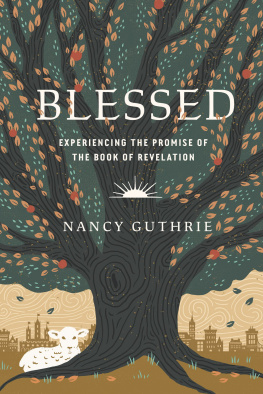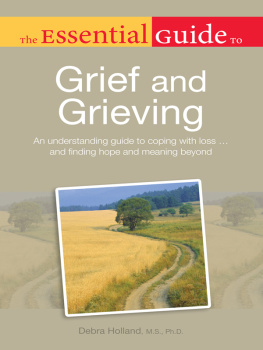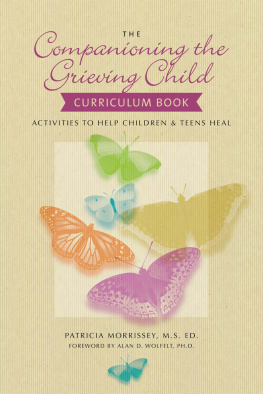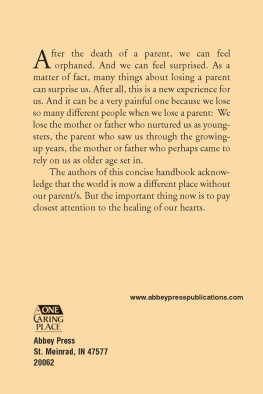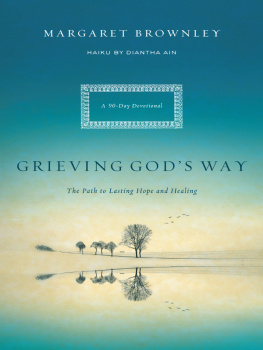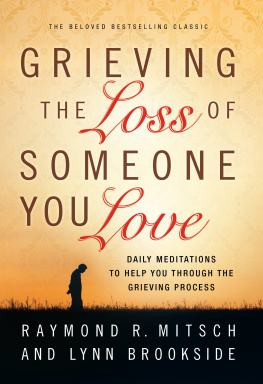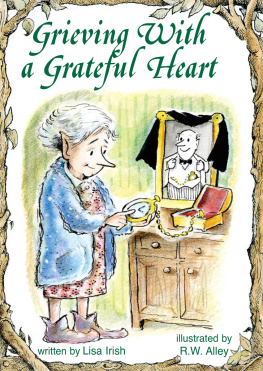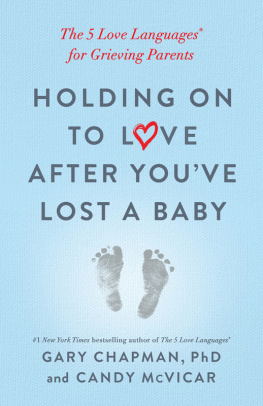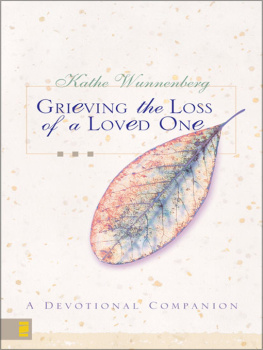Table of Contents
Landmarks
I dont think I really gave that much thought to heaven before our daughter, Hope, was born. It seemed very far removed and remote, somewhat irrelevant to all the more vivid and interesting things going on in the arena that had captured my attentionlife on earth. But then everything changed. I knew when I held Hope that soon she would become an inhabitant of heaven. It mattered more. After she died, I knew a piece of me was there.
Shortly after Hope died, I was in church singing a hymn I had sung all my life. I suppose I had never before really thought through what it meant when I sang, O that with yonder sacred throng we at his feet may fall. / Well join the everlasting song and crown him Lord of all. For the first time, I saw in my minds eye a face I recognized in that yonder sacred throng. I began to sense and long for that reality more than ever before.
It only makes sense that many of the conversations we have with those grieving the death of someone they love turn to the topic of heaven. In fact, I have come to think that one of the gifts given to us in the death of someone we love is that we think more about eternal things. We are awakened to the reality that this life is not all there is.
Those who want to be good comforters to those who are grieving have to be prepared for conversations and interactions regarding heaven. And if were going to bring some clarity to what can sometimes be very vague or thoroughly confused or merely sentimental conversations, we have to become clearer ourselves on what is deeply, reliably, and eternally true about heaven.
The first thing we need to be aware of as we interact with those who have lost someone they love is that heaven cannot be assumed.
Heaven Cant Be Assumed
For many people, perhaps even most people in our modern Western culture, heaven is understood as the place where everybody goes when they dieat least everybody who isnt a murderer or terrorist or a former guard at a concentration camp. Social convention suggests that regardless of what the deceased believed or lived, we comfort grieving people by saying things like, Well at least hes in a better place, or we try to get everyone to smile by talking about what the deceased is doing in heaven even as he smiles down on the rest of us chumps who arent there yet.
But while our culture assumes that most peopleor at least all good people who diego to heaven, that is not at all what Heaven will be filled with people who saw themselves as they really weresinners who deserved nothing less than hellwho threw themselves on Gods mercy and thereby received what they did not deserve: heaven.
When the very religious and highly moral Nicodemus came to Jesus and asked how he could have eternal life, Jesus told him, You must be born again. Dont be too quick to load down that term with modern baggage. Jesus was telling Nicodemus that he was dead spiritually apart from a work of God that would bring him to life. Similarly, Paul writes in Ephesians, And you were dead... (Eph. 2:1). All of us, by nature of the fact that we are sons and daughters of Adam and Eve, are born into this world physically alive but spiritually dead. Most of us dont think of ourselves this way. If we think about our sin at all, we think of ourselves as a little bit sick with sin but not spiritually dead in sin.
How is it that we are made alive, born again? But God, being rich in mercy, because of the great love with which he loved us, even when we were dead in our trespasses, made us alive together with Christ.... For by grace you have been saved through faith. And this is not your own doing; it is the gift of God, not a result of works, so that no one may boast (Eph. 2:4, 89). A person who has been made alive together with Christ may die physically but will never die spiritually. The person who was dead and was made alive together with Christ is as likely to die as Christ is likely to die. And Christ will never die.
But of course we know that there are those who do not see their need to be made alive with Christ. And when those people die, the sorrow for those left behind is multiplied. We should not always assume that the grieving people we talk to are confident their loved one is in heaven enjoying the presence of God. Imagine yourself in that situation (or maybe you are actually in it). Imagine that you never saw any sign that the deceased had a desire to be joined to Christ by faith or perhaps that person flatly rejected or ridiculed the need for Christ. If someone were to bring up heaven and want to assure you that your loved one is there, it would create anxiety, not peace. It would add to your agony instead of giving you assurance.
So what should you say about the eternal destiny of someone who has died? Here is where we must tread lightly but truthfully as we seek to walk beside those who grieve. This is where we go back to where we started in chapter 1 with the principle of let the grieving take the lead. If they initiate a conversation about their confidence or their concerns about their loved ones relationship with Christ, listen and celebrate their confidence or mourn with them over their concern.
Sometimes when were talking with someone who is grieving, we are so desperate to provide comfort, were willing to say things we think she wants to hear that arent necessarily true. But as much as we want to provide comfort in the moment, we need to remember that anything we say that is not ultimately true will ultimately disappoint. While we dont have to say everything we deem to be true, we do want to refrain from compromising, twisting, or abandoning the truth found in the Scriptures regarding life beyond this life in the presence of God. We dont want to gut the gospel in order to give comfort in the moment.
There are times we are likely to hear grieving people refer to their deceased loved one as being in heaven, when everything we know about the deceased would lead us to think otherwise. We need not try to convince the grieving of our concerns. But neither are we obliged to agree with and affirm their assumptions. If we must speak in that context, we should offer what we know is true about God (i.e., that he is so good as to take all who belong to him to himself) rather than speculate on what we dont know about the person who died.
Other times we find ourselves listening to those who are agonized by the prospect that the person they care about may be separated from God for eternity. They may be desperately looking for evidence and affirmation that the deceased was genuinely joined to Christ by faith, when there was perhaps little to no evidence of it. In these situations, once again we need to stick to saying what we know is true. And there are some things we know are true that can bring a measure of comfort.
First, none of us can ever know the full reality of the interior of another persons life or the state of another persons soul. We can observe evidence, knowing that out of the abundance of the heart [the] mouth speaks (Luke 6:45). We can often see fruit of repentance and belief in the lives of others. But not always. Just because we dont see it doesnt mean it isnt there. The question is not whether there was a lot of fruit or just a little; the question is, was there some fruit or zero fruit? If a person has been made alive in Christ, there will be at least some fruit. For the thief on the cross hanging next to Jesus, there would have been little fruit of a life of faith. But there was not zero fruit. There, in the final hour of his life, his eyes were opened so that he saw his sin, recognized Jesus as the one who could save him from the eternal death he deserved, and called upon Jesus to save him. And that was enough. People dont have to jump through our hoops to have a genuine relationship with God through faith in Christ. God alone knows the names that are written in his Book of Life, the names of those who belong to him and cannot be snatched from him.



